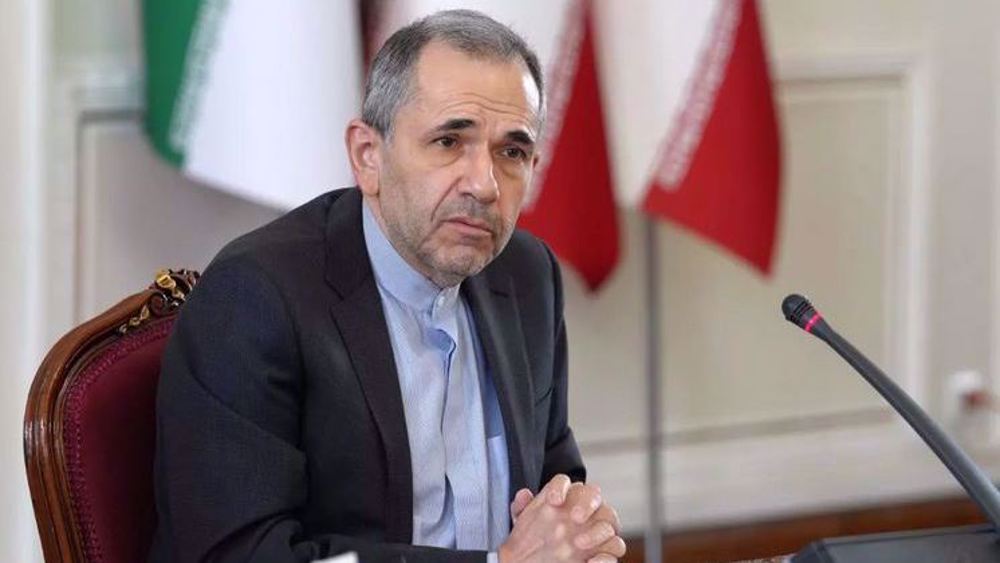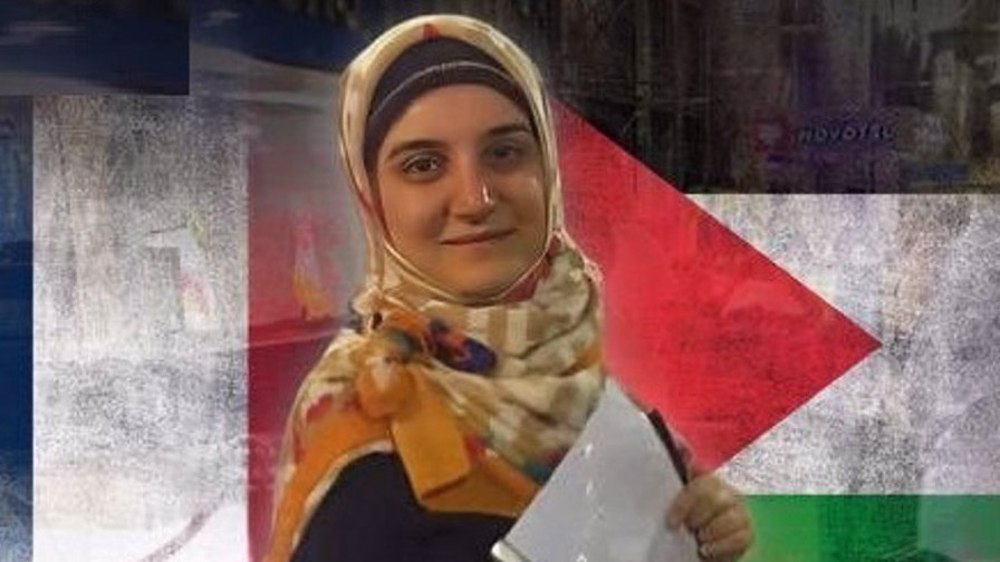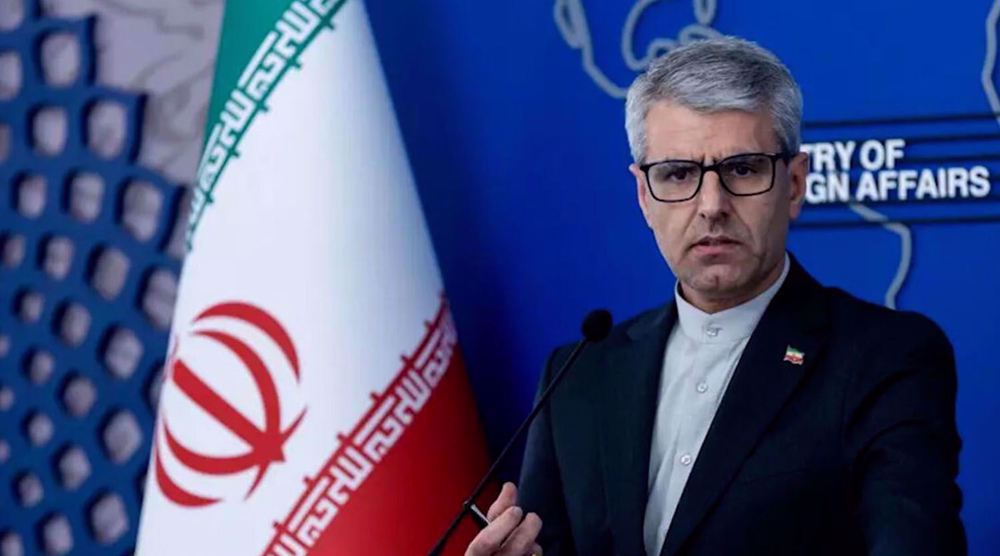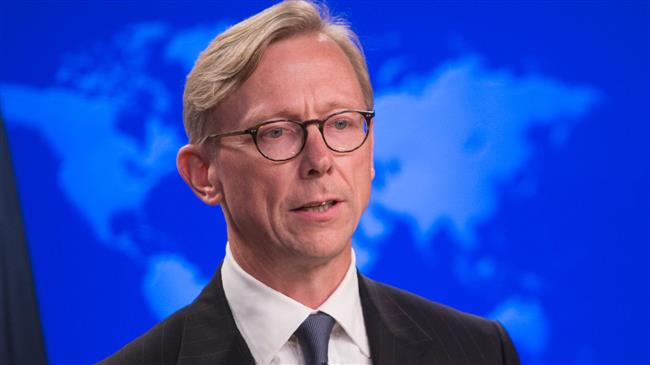US official due in Israel, UAE to push for anti-Iran campaign
US State Department’s Special Representative for Iran Brian Hook is to visit Israel and the UAE to advance US President Donald Trump’s so-called Iran strategy and push for Washington’s hostile campaign against Tehran.
“Hook will travel to Israel and the United Arab Emirates November 12-20,” a media note by the US State Department said Friday.
According to the note, Hook will meet with Tel Aviv and Abu Dhabi officials to discuss cooperation on countering what it called “Iranian threats”.
The State Department said “Hook’s trip aims to advance the president’s Iran strategy” and to increase pressure on the Islamic Republic.
It also said that the “US is committed" to working with its "allies and partners to fully implement" what it referred to as Washington's "maximum pressure campaign” against Iran.
Earlier this week, the US re-imposed the “toughest” sanctions ever against Iran in an attempt to curtail the Islamic Republic’s oil exports and put extra pressure on the country's economy.
The White House claims the new sanctions will force Iran to abandon its nuclear and ballistic missile programs while rolling back Tehran’s influence in the Middle East.
While the Trump administration had earlier vowed to cut Iran’s oil exports down to zero, it later admitted that it had failed to get the main buyers of Iranian oil to tag along and had to grant temporary waivers to China, India, South Korea, Turkey, Italy, Greece, Japan and Taiwan.
Hook’s planned visits to the occupied territories and Abu Dhabi come as the Israeli regime and Persian Gulf states have, in recent months, openly moved toward a rapprochement, especially by presenting Iran as their common enemy.
In late October, Israeli Prime Minister Benjamin Netanyahu made a surprise visit to Oman, where he met with Oman’s ruler Sultan Qaboos bin Said al-Said. Israeli Culture and Sports Minister Miri Regev also traveled to the UAE to accompany Israel’s judo team on the very same day.
Israeli Intelligence and Transport Minister Yisrael Katz on Thursday called for stronger relations with the Persian Gulf Arab states in civilian sectors, saying that such cooperation can and should be expanded.
The intelligence official described recent public visits by Israeli ministers to the Persian Gulf Arab states as “part of a wider trend of strengthening ties between Israel and the (Persian) Gulf countries based on common interests and a mutual recognition of the potential benefits for both sides, both in terms of contending with common challenges and threats as well as opportunities.”
Speaking earlier on Friday, Israeli politician and former military general Yoav Gallant called for a further opening of relations with all Arab countries in a united front against Iran.
“If you look at the picture, there is no real reason for Saudi Arabia or the (Persian) Gulf states to fight with Israel. We have shared interests, a shared enemy called Iran, which threatens Saudi Arabia from close with all that it has. And therefore there is no reason we should not be in the process to have peace in the region,” said Gallant.
Saudi Crown Prince Mohammed bin Salman has been seen by many as the leading Arab figure in implementing Trump's new policy. In the last few months alone, Saudi Arabia has expressed its recognition for the Israeli regime, opened its airspace for Israeli flights, been visited by Zionist delegations and has banned over 600,000 Palestinians in Jordan from participating in Muslim annual Hajj congregation.

Iran, Armenia should elevate ties to strategic partnership: Deputy FM

French police detain female Iranian academic to silence anti-Israeli genocide voices

Iran: US talks focus on lifting ‘cruel sanctions’; no direct engagement amid threat, pressure
China urges US to ease trade tensions via ‘equal dialogue’
‘Hamas not defeated, military overstretched’: Israeli army chief
Iran, Armenia should elevate ties to strategic partnership: Deputy FM
VIDEO | Yemen shoots down another US MQ-9 drone
VIDEO | A number of Israeli soldiers killed, injured in Gaza ambush as retaliation rages
US pro-Israel strikes killed 123 Yemenis in less than a month: Ministry
VIDEO | Wars and documentaries
Iran starts major project to treat wastewater with cold plasma









 This makes it easy to access the Press TV website
This makes it easy to access the Press TV website